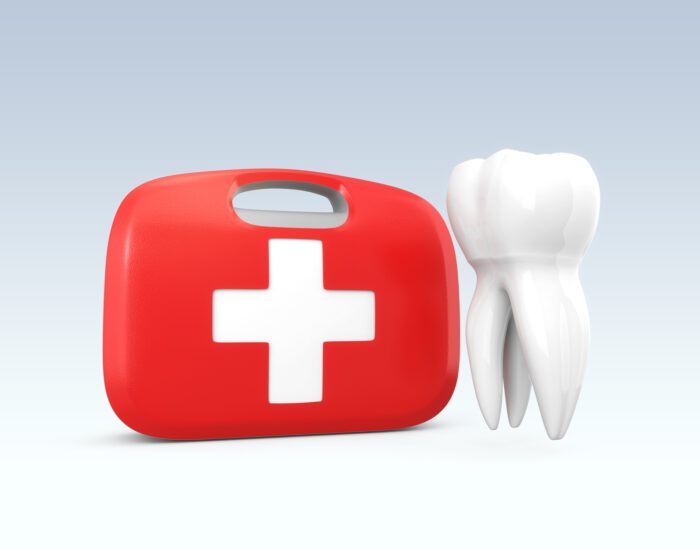Coastal Dental Care provides emergency dentistry in Nederland, TX to their patients. If you are experiencing a dental emergency, call us immediately. We will do our best to see you promptly.
It is impossible to expect a dental emergency. That is why it is important to choose a dentist that offers emergency dental care for their patients. A dental emergency can cause pain, discomfort, and long-term damage without the proper treatment. Seeking help from our Coastal Dental Care team as soon as possible is vital to preserving your oral health.

The Importance Of Emergency Dental Care
Timely intervention by a dentist is critical in a dental emergency. It will prevent complications, minimize pain, and help to preserve your teeth and gums. Dental issues can get worse rapidly. Without prompt treatment, it can lead to irreversible damage. Seeking help as soon as possible ensures that you will receive a diagnosis, treatment, and follow-up care. This contributes to the overall success of dental emergency management.
What To Do In A Dental Emergency
If you are having a dental emergency, the first step is to get your situation under control. Then contact Coastal Dental Care to seek further advice and set up an appointment. Taking swift action will lower your chances of permanent damage. Here is what we suggest you do in each type of dental emergency:
Tooth Gets Knocked out
If you can locate the tooth, hold it by the crown part only never making contact with the root. Rinse it gently in water. If possible, place it back in the socket and hold it in place. If you cannot set the tooth back in the socket, store it in milk or saliva until your emergency dental appointment.
Fracture or Chip a Tooth
Start by rinsing your mouth out with warm salt water. If there is bleeding present, apply gentle pressure to control the bleeding. Save any broken pieces if you can locate them. Use a cold compress or ice for swelling and over-the-counter medicine for pain. Your dentist will assess the extent of your damage at your appointment to determine the best treatment.
Dental Restoration Falls Out
If a dental filling, dental crown, or dental bridge falls out, keep it until you can see your dentist. Never use any household adhesives to try to reinsert the dental restoration. This can lead to further damage to the restoration or tooth. You may use dental cement found in a drug store or sugar-free gum as a temporary fix. Prompt professional assistance is crucial to restoring the restoration.
Permanent Tooth is Coming Loose
Gently try to reposition the tooth into its socket. Bite down on gauze or a clean cloth to hold it in place. Avoid chewing on that side of your mouth until you see your dentist. Seek immediate dental help to stabilize the tooth and prevent further damage.
Tooth Abscess
An abscess is a serious dental infection. You must be seen and treated immediately. Until your appointment, rinse with warm salt water to reduce swelling. Use a cold compress for swelling. Take over-the-counter pain relievers. Your dentist will determine the best treatment option and prescribe antibiotic treatment. Never attempt to drain the abscess by yourself.
Severe Toothache
A severe toothache can be a sign of many dental problems. Start by rinsing the mouth out with warm salt water. Floss gently to remove any food or debris. Take over-the-counter pain relievers but avoid placing aspirin directly on the tooth. If you are still in distress, see a dentist promptly for a thorough evaluation and appropriate treatment.
Severe Bleeding
Apply gentle pressure with gauze or a clean cloth to control bleeding. Rinse the mouth with cold water. If bleeding persists, seek immediate emergency dental care or go to the nearest emergency room.
Cut to Soft Tissues in Gums
Rinse the mouth with warm saltwater. Apply gauze or a clean cloth to the cut with gentle pressure. If bleeding persists or the cut is severe, seek prompt dental attention or visit the emergency room.
Painful Gums
Rinse the mouth with warm saltwater. Use a cold compress for swelling. Gently floss to remove debris. If pain persists, schedule a dental appointment to identify the underlying cause and receive appropriate treatment.
Being well-informed about what to do in a dental emergency is crucial. Quick and appropriate actions can make a significant difference in preserving oral health and preventing long-term complications.
Coastal Dental Care offers expert emergency dentistry in Nederland, TX to patients who require immediate dental care. If you experience a dental emergency, it is important to call us as soon as you can for help. You can reach our office at 409-215-2035 to schedule your emergency dental visit.
